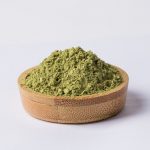This is a sponsored guest post.
Vein Health Matters: What Women Ages 25–44 Need to Know
Between managing careers, families, and personal goals, women in their mid-twenties to mid-forties often prioritize everything but their own health. Yet one area that deserves more attention during these years is vein health.
Many women assume vein issues only affect older adults, but the truth is that venous conditions — including spider veins and varicose veins — can begin developing much earlier. Being proactive now can prevent discomfort, aesthetic concerns, and more serious circulatory problems later on.
Why Vein Health Should Be on Your Radar
Your veins are responsible for carrying blood back to your heart. Inside these veins are tiny one-way valves that prevent blood from flowing backward. Over time, or under certain conditions, these valves can weaken or fail, allowing blood to pool in the lower legs — a condition known as chronic venous insufficiency.
For women aged 25–44, several factors can increase the likelihood of developing vein problems:
1. Hormonal Changes
Estrogen and progesterone — hormones that fluctuate during menstrual cycles, pregnancy, and perimenopause — can affect the tone and elasticity of your veins. These hormonal shifts make women more susceptible to spider veins and early varicose veins.
2. Pregnancy
Pregnancy is one of the most common times vein issues begin. The growing uterus increases pressure on the veins in the pelvis and legs, while pregnancy hormones relax vein walls. Many women notice visible veins appearing during or after pregnancy.
3. Sedentary Lifestyle
Many modern jobs involve long hours of sitting or standing, which restricts circulation in the legs. Without regular movement, blood can pool in the lower extremities, putting added strain on your veins.
4. Genetics and Family History
If your parents or siblings have varicose veins, your risk is higher too. Genetics influence the strength and function of your vein valves and vessel walls.
Early Signs of Vein Problems to Watch Out For
Even if you don’t see visible varicose veins yet, there are subtle signs that may indicate the start of a venous issue:
- A feeling of heaviness or aching in the legs after standing
- Mild swelling around the ankles or calves
- Tingling, itching, or cramping in the legs
- Restless legs, especially at night
- Appearance of small, web-like veins (spider veins)
Catching these symptoms early makes treatment easier and helps prevent progression.
Smart Habits for Healthy Veins
Taking care of your vein health doesn’t require a drastic lifestyle overhaul — just a few simple adjustments can make a big difference.
1. Keep Moving
If your work involves sitting for long hours, take short breaks to stretch, walk, or flex your calves. Movement helps your leg muscles push blood back toward your heart.
2. Exercise Regularly
Regular physical activity — like walking, yoga, or cycling — boosts circulation and strengthens the muscles that support your veins.
3. Maintain a Healthy Weight
Extra weight adds pressure to your leg veins, so maintaining a balanced diet and healthy body weight can protect your vascular system.
4. Elevate Your Legs
After a long day, elevate your legs for 15–20 minutes to reduce swelling and ease vein pressure.
5. Wear Comfortable Clothing and Shoes
Avoid tight waistbands and high heels, which can restrict blood flow. Opt for supportive shoes and breathable clothing instead.
6. Consider Compression Stockings
If you notice mild swelling or fatigue in your legs, compression stockings can help promote healthy circulation and relieve discomfort.
Helpful Items That Support Vein Health
In addition to lifestyle habits, a few supportive items can make maintaining good circulation much easier:
🧦 Compression Stockings
These gently squeeze your legs to improve blood flow and prevent swelling. Choose graduated compression stockings — tighter at the ankles and looser up the leg — for best results.
🪑 Leg Elevation Pillow or Wedge
Elevating your legs above heart level for 15–20 minutes reduces swelling and helps blood flow efficiently back to your heart. A contoured wedge pillow can make this simple habit more comfortable.
🦵 Circulation or Foot Massager
Electric leg or foot massagers stimulate blood flow and ease tension after long hours of standing or sitting. They’re especially helpful for busy women who need quick relaxation at home.
🧍♀️ Standing Desk or Adjustable Workstation
Alternating between sitting and standing while you work can dramatically improve circulation. Pair this with brief walking breaks every hour.
👟 Supportive Footwear
Low-heeled, cushioned shoes provide proper leg support and encourage blood movement — unlike high heels, which can strain your calves and restrict circulation.
💧 Water Bottle for Hydration
Staying hydrated keeps your blood thinner and supports optimal circulation. Aim for at least eight glasses of water a day, and carry a reusable water bottle to remind yourself to drink regularly.
These simple tools, used consistently, can go a long way in maintaining healthy, strong veins.
Why Seeing a Vein Specialist Matters
Even young women can benefit from a vein evaluation — especially if symptoms persist or if you have a family history of venous disorders. Modern vein care has evolved significantly, and early treatment is far easier and more effective than waiting until symptoms worsen.
At the vein specialists in Deer Park, experts use advanced imaging and minimally invasive procedures to treat vein issues at their source. Treatments such as sclerotherapy, endovenous laser therapy (EVLT), and radiofrequency ablation (RFA) are quick, safe, and virtually painless — often completed in under an hour with no hospital stay required.
These state-of-the-art procedures not only relieve physical discomfort but also restore confidence by improving the appearance of your legs.
How Vein Health Impacts Confidence and Well-Being
For many women, visible veins can be a source of self-consciousness, especially during warmer months or in active lifestyles that include sports and fitness. But vein health isn’t just about appearance — it’s about comfort, energy, and long-term wellness.
Healthy veins support good circulation, which means less fatigue, better endurance, and improved recovery after exercise. Addressing vein issues early allows you to stay active, mobile, and confident in every stage of life.

Hi there! I am Emily Evert, the owner of Emily Reviews. I am 28 and live in a small town in Michigan with my boyfriend Ryan and our two pugs. I have a large family and I adore my nieces and nephews. I love reading memoirs, and learning about child development and psychology. I love watching The Game of Thrones, Teen Mom, Sister Wives and Veep. I like listening to Jason Isbell, John Prine, and other alt-country or Americana music. I created Emily Reviews as a creative outlet to share my life and the products that I love with others.
This post currently has no responses.














Leave a Reply